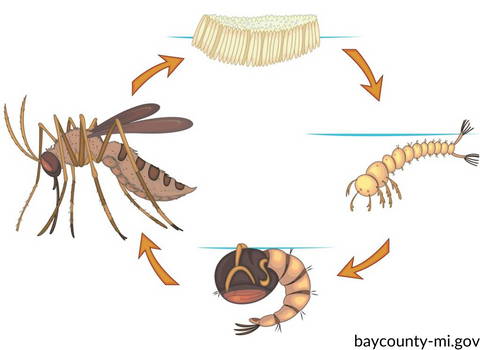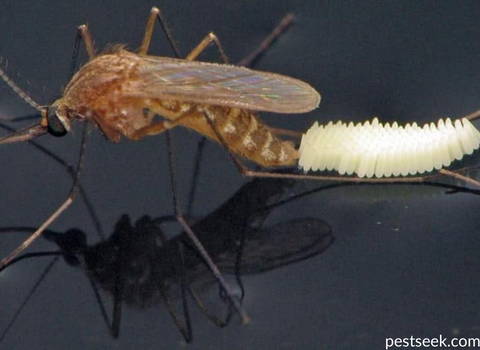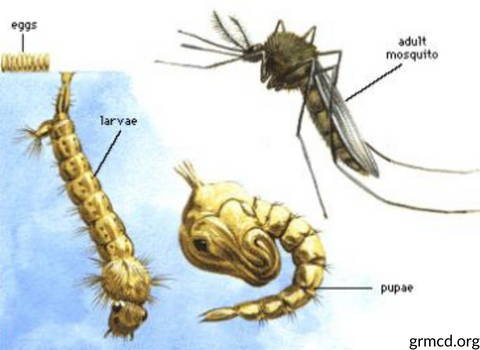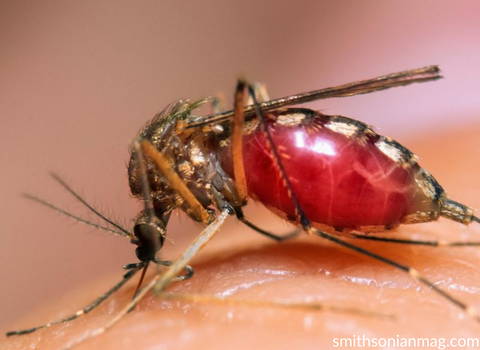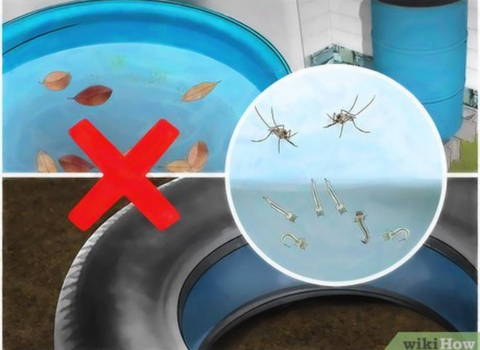Mosquito Lifespan: How Long Do They Live?
Mosquitoes belong to the Order Diptera, Family Culicidae. Since they are one of the most adaptable and successful insects on Earth, it is important to understand their life cycle so that you can get rid of them properly.
Almost all-natural or man-made collections of water can support mosquitoes. These insects have been found in mines nearly a mile underground as well as on mountain summits at 14,000'. There is also a good chance that mosquitoes are hiding in your backyard.
While not all species of mosquitoes cause problems for people, many species have profoundly negative effects. Mosquitoes have a long, sharp proboscis, so you can distinguish them easily from other insects.
These insects have over 3,000 species known throughout the globe and 176 of them can be found in the U.S. A small number of them are carriers of various diseases, but most of them are nuisance species of mosquitoes that dramatically affect people’s quality of life.
Mosquito Biology: Understanding the Life Cycle of Mosquitoes
All mosquitoes require standing water to survive and reproduce. Different mosquito species, however, have different habitats. For example, “floodwater” species breed and live in temporary water sources. “Permanent water” mosquitoes, on the other hand, breed and live in water habitats that remain for a long period.
Other species only lay their eggs in natural and artificial containers. No matter what the breeding habitat is, all mosquito species undergo a four-stage life cycle – eggs, larvae, pupae, and adults, with the larval and pupal stages always being aquatic mosquito.
Where Do they Lay their Eggs?
Female mosquitos lay their eggs either in attached groups called rafts or individually. They may lay their eggs on the surface of the water, in areas prone to flooding from rain or irrigation or in tree holes. Depending on the species of mosquitoes and the temperature, the egg may hatch after a few days of being laid.
If the eggs are subject to intermittent flooding and laid out of still water, the embryo may lay dormant until the right natural hatching condition is met. Mosquitoes frequently overwinter during the egg stage. Some species, however, overwinter as adults or during the larval stage.
Larval Stage
The larval stage starts as soon as the eggs hatch. The larva of most species’ hangs suspended from the surface of the water as they require air to breathe. An air tube known as a siphon protrudes from the posterior of the larva to the surface of the water and works as a snorkel. Larvae filters feed on microorganisms found in water.
The larvae can dive deeper into the water in an “S” movement when alarmed. This motion has earned them the moniker “wrigglers” or “wigglers.” The larvae outgrow their exterior casing and grow a new exoskeleton after several days.
The phase between these moults is known as instars. The mosquito larva goes through four instars. The larval stage can range from four to 14 days depending on the species as well as temperature and food availability. The pupal stage will then begin.
Pupal Stage
In the pupal stage, the pupa will still need to breathe air at the surface of the water, but they do not have to eat anything. The pupa is also sensitive to shadows, other disturbances, and light. They are physically active too.
The pupa uses a tumbling or rolling motion to dive deeper into the water and this movement has earned them the moniker “tumblers.” This period lasts from 1.5 days to four days. The pupa's skin splits along the back and a new adult mosquito slowly comes out and rests on the water surface.
Adult Mosquitoes and Blood Meal
Adult male mosquitoes usually come out first and linger near the breeding area to wait for the females. Mating occurs quickly due to the high mortality rate among adult mosquitoes. Almost 30 percent of the adult mosquito population can die every day.
Female mosquitoes compensate for the high mortality rate by laying a large number of eggs. The average male mosquito lifespan is only six to seven days and they feed mostly on plant nectar. Male mosquitoes do not take blood meals. Females can live for five months or even longer than males if they have enough supply of food. The average female life span is about six weeks.
To develop and nourish their eggs, they usually take blood meals and plant nectar. Females locate their victims through the temperature patterns, trace chemicals and carbon dioxide produced by their victims. Mosquitoes are extremely sensitive to chemicals including carbon dioxide, amino acids, and octenol.
The average female mosquito's flight distance is between one and 10 miles. Some species, however, can travel up to 40 miles. After every blood meal, she will lay or oviposit her eggs completing the life cycle of the mosquito. Some species lay eggs only once, but others can lay eggs multiple times throughout the mosquito life cycle.
How You Can Stop the Mosquito Life Cycle
You can hire an expert to stop the mosquito life cycle. Find a company that is built on technical expertise and public health ethics professionalism. Look for a company that establishes vector management programs based on a profound understanding of the ecology of the underlying vector. The programs feature environmentally sound control measures.
Look for a company that is dedicated to excellence in vector control and related contract services, and they also aim to enhance the quality of human life through education surveillance as well as control of various disease vectors like mosquitoes.
How to Eliminate Mosquitoes Inside Your House
The best way to keep your home mosquito-free and stop the mosquito life cycle is to prevent these insects from entering your abode in the first place. When it is dusk, close all the windows and doors in your home because mosquitoes are more active during this time. You can also buy door strips that can block the gap around the windows and doors to prevent mosquitoes from entering your home.
Below are some products you can use to keep mosquitoes out of your home:
It is also important to know where they are breeding. Pooled water in the garden or from the AC can be a breeding site for mosquitoes. If you have kitchen lofts or storerooms where you keep old items, you should also clean those rooms occasionally. Aside from this, you should clean and cover your drains properly to stop the mosquito life cycle.


